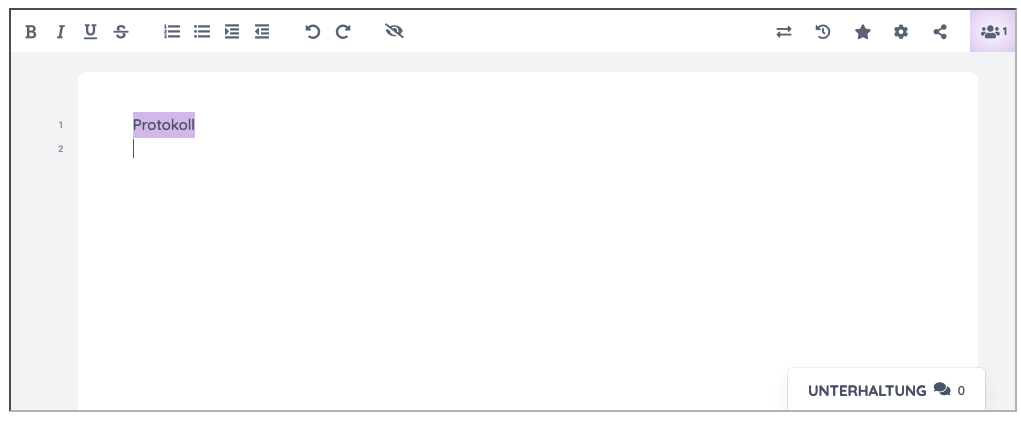
The new Stud.IP tool Etherpad offers the possibility of collaboratively writing text documents with others, keeping track of changes in the document and save the contents in a downloadable PDF document. The tool has an integrated chat (Unterhaltung) for synchronous communication while working together in the document.
How can I (or my students) collaboratively write a text document (Pads) with Etherpad?
The basics:
- You can create new private and public pads. By default, they are only visible to the participants of your course, but if you publish it, you have a public link that you can share with others (also external users to Stud.IP) to work together in the document. Another option is to set up a password for the pads, so that e.g., only specific participants or groups can edit it.
- When you click on the new pad, you will see an embedded screen with a text document, where you have limited text options to write. Text written by each user will be shown in the document with a different colour, unless you change this setting.
- You can write simultaneously with other users in the pad. If you want to check who has edited something in the pad and when, you can look at the editing history.
- If a pad should not be edited anymore beyond a specific moment in time, you can activate the write protection option. Then, but also before, you can save the current version and the contents of the document and have a downloadable PDF with them. You can also export the pad as Etherpad format (public tool), txt as HTML (webpage).
Some of their characteristics:
- It is user-friendly, easy to use
- It has simple options for text editing
- It includes a chat option
- It allows simultaneous work for different users, differentiation of authorship by colour
- It allows creating private and public pads – password-protected, public URL
- It gives the possibility to activate a write protection, when the document should not be edited (anymore)
- It includes options to save as PDF, and export to Etherpad, txt and HTML
Possible pedagogical uses:
- Writing collaboratively a text document among different participants (students)
- Collecting data about a research project (students)
- Collecting ideas and notes in a class, a meeting,… (students and teachers)
- Preparing an individual or group text assignment in the middle of a course term (students)
Example:

If you try it in your class, let us know your experience with the tool below as a reply (either in English or German) and rate the didactic value of the tool accordingly.
